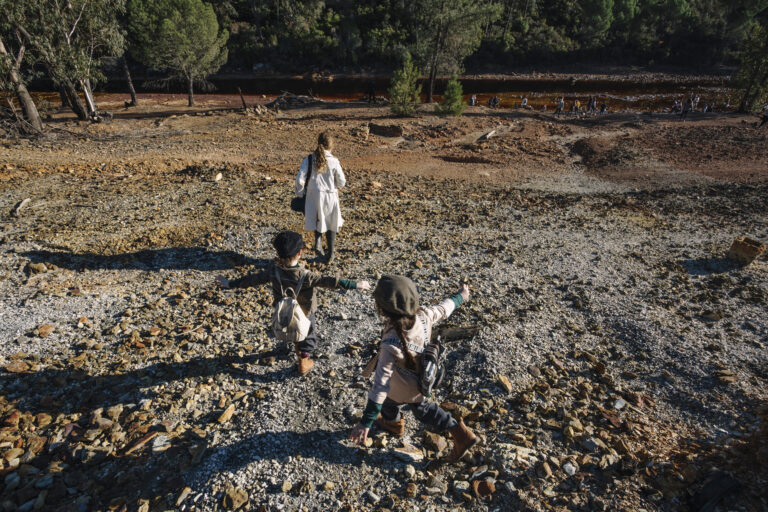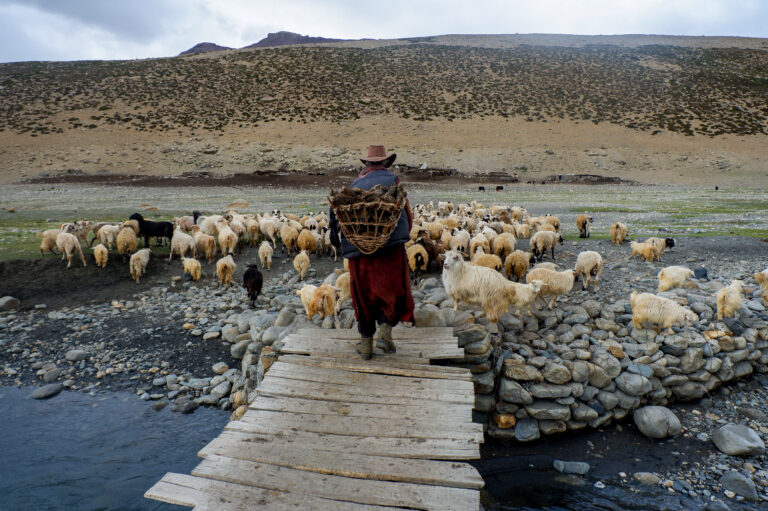
The young Marlene Engelhorn is seeking 50 suitable people to help her decide the fate of the fortune she inherited from her grandparents. The sum to be distributed, which amounts to 3.8 billion euros, is intended to fulfill a deeply personal dream. For the young Austrian, witnessing how wealth can transform the lives of hundreds—even in a context where the absence of effective political action in this regard is the norm—brings her the greatest satisfaction.
The most fervent dream or aspiration of countless human beings—perhaps millions—is, without a doubt, to have money in abundance, to be millionaires. For this reason, many pursue promising careers and spend their best years riding the crest of the wave, giving their utmost effort. Others, less driven and more optimistic, prefer to seek financial comfort through games of chance, plunging into a treacherous and almost always fruitless realm where they invest—or lose, most of the time—their meager resources, all while dreaming of a decisive stroke of luck. Finally, there are those who simply enjoy true and legitimate fortune: the heirs of vast economic empires, for whom money arrives as though fallen from the sky.
The case of 32-year-old Marlene Engelhorn is a faithful reflection of the latter situation. Her personal story, marked by generosity and strong values rooted in equity and social justice, surprised the world when news broke of her decision to donate 90% of her inheritance. It was a choice aimed at living coherently in harmony with one of her most central and prioritized personal goals: contributing in concrete terms to narrowing the immense global divide between rich and poor.
Of Austrian nationality, Marlene was born into privilege. Granddaughter of the founder of the pharmaceutical empire that built the BASF and Boehringer Mannheim companies, she realized far too early in life—as a rebellious teenager—that the vast differences between the lives of the extremely wealthy and those of the rest of the world were, in her eyes, disproportionate and unjust. Thus, when her grandmother, Traudl Engelhorn Vechatto, passed away and she was informed that she would become one of the world’s youngest billionaires, her previously modest and simple life grew instantly more complicated.
What Is the Right Thing to Do with So Much Money?
The enormous sum deposited into her bank account was far from a source of joy; to Marlene Engelhorn, it felt like the heaviest of burdens, weighing on her conscience and her back. Therefore, instead of organizing lavish celebrations, embarking on more trips, buying houses in paradise-like destinations, or indulging in every whim, she set her plan in motion to relieve the weight that all this money imposed on her life and conscience. The guiding question behind her strategy was: What would be the best way to contribute effectively to the well-being and equity of society?
As part of her personal response to this question, Marlene founded, along with a group that shared her way of thinking, the organization Tax Me Now. With this initiative, she clearly conveyed one of her key ideas about how the State should deal with the wealthiest citizens. From her perspective, this involves passing legislation to tax the rich and use those funds to finance social programs that benefit and uplift the less fortunate.
In concrete numbers, the young Marlene came into an inheritance of astronomical dimensions, estimated at more than 4 billion dollars. On the subject, she stated: “Certainly, no one needs that much money to live. At least, I definitely don’t need such an overwhelming amount to live with dignity and be happy. On the contrary, I believe that if used wisely, this sum can change the lives of many people who truly need it. Whether it’s to build better living conditions, create a future that matches their dreams, and thereby contribute their talents to the world.” The young heiress explained this with great emphasis when asked about her brave decision.
The Values that Sustain an Altruistic Life
But why is Engelhorn doing this? Many around the world still wonder. The answer, which the young woman herself has explained on numerous occasions, lies in her core personal values. It is a philosophy of life that guides her path and her particular way of inhabiting the world. An attitude which, as she has expressed, means keeping her feet on the ground, her eyes open to the world’s problems, and her heart compassionate. Her focus: to fight for transcendence and to witness the impact that well-distributed wealth can have in a social landscape where effective political action to halt growing inequalities is so often absent.






